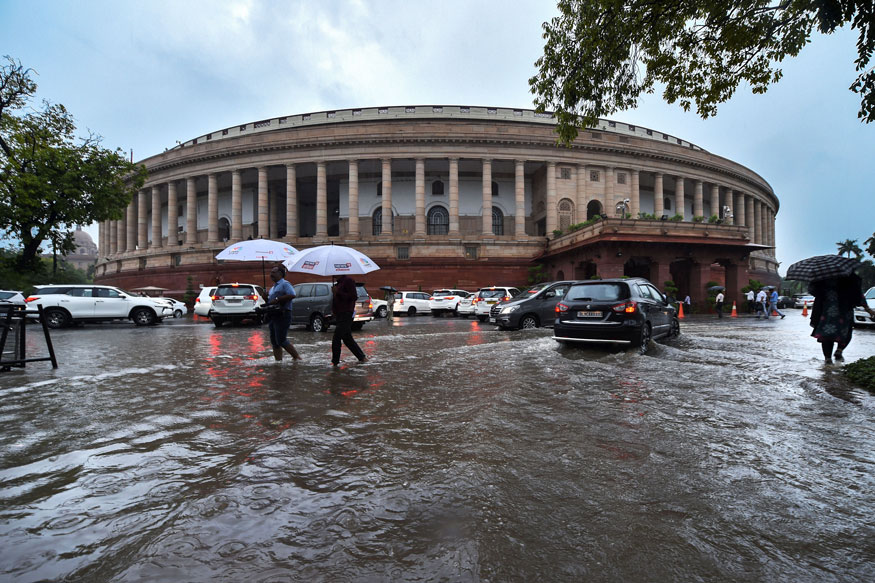G20 Summit: Why The Great Governance Of India Cannot Develop The Nation For The Common Man But Can Go An Edge To Welcome Foreign Dignitaries!
The recent G20 summit preparations in Delhi have generated a lot of discussion on why the Indian government is devoting so much time, energy, and resources to something that is constantly striving to be the best. Let's take a closer look at the unique G20 summit preparations that may annoy the populace and why the Indian government has to modify its diplomatic greeting and need to focus more on the internal issues of the nation!

Diplomacy, like so many other sectors of public administration, is being impacted by the fundamental developments of the twenty-first century. Shocks to the international order, the evolution of internet-based global communication, and the legitimacy issues confronting liberal democracies all appear to need a fundamental re-orientation of foreign policy instruments. Diplomacy, according to Otto von Bismarck, the first chancellor of the German empire (1871), is the never-ending negotiation of reciprocal concessions between governments. If such is the case, we must now consider why we are delving so much into the time-consuming art of managing international relations.
The recent preparations for the G20 summit in Delhi have raised many questions about why the Indian Government is spending so much time, effort and resources on something that has a never-ending demand to be the best, ignoring its internal issues. Let’s dive down the lane to know more about the unusual preparations of the G20 summit that can bother the state people and why there is a need for change in diplomatic welcome by the Indian government!

Pain 1: Illegality is the exploit of diplomatic immunity.
In contrast to other nations where LHD vehicles are widespread, India strongly restricts the purchase, registration, and operation of LHD vehicles. Driving a car with left-hand steering control on Indian roads is prohibited, according to Section 180 of the Motor Vehicles Act, 1939. Violations of this legislation may result in fines and the incapacity to operate cars in public. Our constitution has such a beautiful law. But what if the government breaks the law, resulting in the rise of illegitimacy? Hence, the same is going to happen after a few days.
India has allowed foreign diplomats to bring their left-hand vehicles on Indian roads during the G20 summit. The question raises ‘Why’? Are the foreign dignitaries greater than Indian laws? The Delhi Police has already expressed the concern that they face issues with 100 left-hand drive (LHD) vehicles roaming in the city. The Delhi Police is also having difficulties with the special convoys since driving an LHD car is prohibited in India. Although police may overlook the illegality aspect, the department is worried about LDH cars sharing roads with RHD automobiles. It feels very sad to see that we are so much into our ‘Atihi Devo Bhav’ policy that we have kept these ‘Atithies’ above our law!

Pain 2: City shutdown- A trouble to residents.
The public loses access to a wide range of services whenever the government closes down. Government shutdowns can harm small enterprises by causing a shortage of funding and lower earnings. Small companies suffer alongside furloughed public employees when the central and state government fails to keep the lights on.

Arvind Kejriwal, the CM of Delhi, approved the request to proclaim a public holiday in Delhi from September 8 to 10 in preparation for the G-20 Summit. All schools and government offices, including MCD offices, will be closed on these dates. The police have also requested that the chief secretary issue an order requiring commercial and business businesses in ‘controlled zones’ to remain closed.
We are happy and proud that India is hosting such a grand event in their homeland. However, closing businesses and commercial establishments may create a problem for the localities. Moreover, who will pay for the losses incurred by the business owners for three days? Again, this effort by the government to delight foreign dignitaries seems to be done at the cost of the pain of domestic folks.
Pain 3: The city cannot resist waterlogging for the common public, but the same waterlogging can be controlled on the onset of foreign dignitaries.
Vikas Marg, located only a stone’s throw from the Delhi Secretariat and under the careful eye of the Public Works Department (PWD) headquarters, was dealing with serious waterlogging about a month ago. According to reports, the flooding is caused by river water spilling down from the campuses of private colleges such as the School of Planning and Architecture (SPA) and government buildings such as Vikas Bhawan. The scenario has hampered traffic flow on this crucial route, which connects the city’s major southeast, east, and central sectors.
At that time, the government was unable to manage the floods with its arrangements and was unable to provide help to its residents. However, an elaborate contingency plan will now be devised to deal with waterlogging caused by expected excessive rains in the run-up to and during the G-20 Summit in the national capital next month.

Directions were given by L-G House authorities to guarantee that there is no waterlogging along the paths travelled by dignitaries and delegates throughout the event. The proposal calls for the installation of tractor-mounted, heavy-duty 50 HP pumps to drain surplus water as needed. This is in addition to the mechanical road sweeping (MRS) vehicles, which are outfitted with heavy water jetting devices to clear mud and silt from the roadway, as well as a super sucker to clear clogged drains and sewage lines.
If the officials are thus efficient, why didn’t they implement these measures a month ago, when the waterlogging problems persisted even after the rains? Again, it appears that the cry of the common man is heard just for the sake of votes; the rest of the time, our administration is solely concerned with how well foreign dignitaries feel on our soil.
Just read below, and you will feel even more helpless.
This is the news from June 2023 that a man died in the national capital’s Harsh Vihar after his autorickshaw fell into a pothole. And this is just one case. There are many cases where the family members of the deceased(during the accident) blamed the civic authorities for their negligence in the construction and maintenance of roads.

Work on some of these roads has already begun, and work on others will begin soon, according to authorities. The departments will enhance the road infrastructure by fixing potholes, replacing damaged black tops and walkways, central verges, and installing green covers as part of the rehabilitation work. Streetlights, signs, and power poles that are not working will be repaired. It’s great that all of these developments and repairs are taking place, but why haven’t these been done for the general public?
Conclusion.
Vienna Convention on Diplomatic Relations and other accords periodically establish diplomatic privileges. However, it is only in India where this means that in addition to foreign diplomats or ‘sending states’ taking full and often undue advantage of protocols, our own governance jeopardises laws to welcome the dignitaries. This paved the way to treat India, even today, as a slave country or colonial dominion rather than as an equal state in the name of diplomacy.
Moreover, all these arrangements are happening for foreign dignitaries. There is nothing wrong with that, but why are these efforts not taken by the government for the residents of the nation, who are not only the vote givers but also the taxpayers of this nation? It is sad to see that ‘WE, THE PEOPLE OF INDIA’ who elects and gives chair to our leaders and then pay for the maintenance of those political chairs are not getting the benefits of our duty.
At the same time, India is so preoccupied with the notion of ‘Atithi Devo Bhav‘ that it forgets that ‘Atithi’ will be welcomed by whatever means conceivable, but nothing is above the rules of India! I hope that one day, WE, the Indians, will be able to rise beyond the colonial enslavement that once existed and is still present in the thoughts of our leaders.




